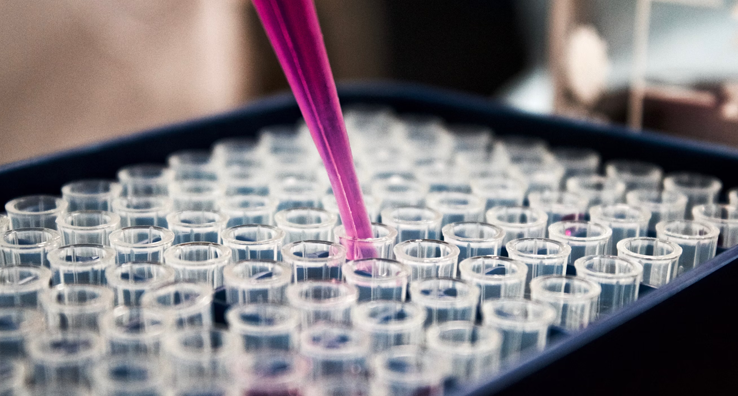Ligand binding assay (LBA) development and validation for PK, TK, PD, and immunogenicity assessment - supporting biotherapeutics and biologic preclinical and clinical programs
Ligand-binding assays (LBA) is the industry accepted method for quantification of proteins, antibodies, DNA, ribonucleic acids, biosimilars, and other large molecules in pharmacokinetic (PK), toxicokinetic (TK), pharmacodynamic (PD) and immunogenicity studies during preclinical and clinical development.
Ligand-binding assays are challenging due to specific and non-specific interfering matrix components. As a result, establishing method selectivity, specificity, and range of quantitation can be difficult to achieve. Sample matrix interferences can lead to unreliable PK data, and occur due to the presence of interfering substances - such as lipids, serum proteins, anticoagulants, binding proteins, or other factors such as ionic strength, pH, or viscosity.
Each ligand binding assay must be developed using the most appropriate assay format and validated to ensure robust and reliable data to support critical decision making. Strategic approaches to method development ensure optimization of the assay’s selectivity, specificity, and quantitation range whilst minimizing matrix interference effects. Our lab team ensures that the validated assay meets worldwide regulatory requirements.
Global Ligand Binding Assay Services
Our ligand binding assay lab experts are experienced in the selection of the most suitable assay format, including enzyme-linked immunosorbent assay (ELISA), electrochemiluminescence assays (ECL), or radioimmunoassay (RIA), cell-free, cell-based assay formats, and next generation ligand binding assays (Simoa).
We understand the importance of well characterized ligand binding assay reagents as variation in reagent specificity and binding affinity can lead to differences in assay performance. While some LBA reagents are commercially available, others may need to be specifically produced. Through our biologics characterisation laboratories, we can fully characterize these biomolecule reagents and monitor for quality and batch-to-batch, and lot-to-lot differences.
By selecting Intertek, you gain a leading, global bioanalysis services outsourcing partner (CRO) - with extensive experience in ligand binding assay method development, validation, and bioanalytical support for PK assessment and data submission. We anticipate all sources of risks related to using a validated ligand binding assay - so that you will obtain the highest quality, regulatory-driven data you need during preclinical and clinical development.
Large Molecule Bioanalytical Services

